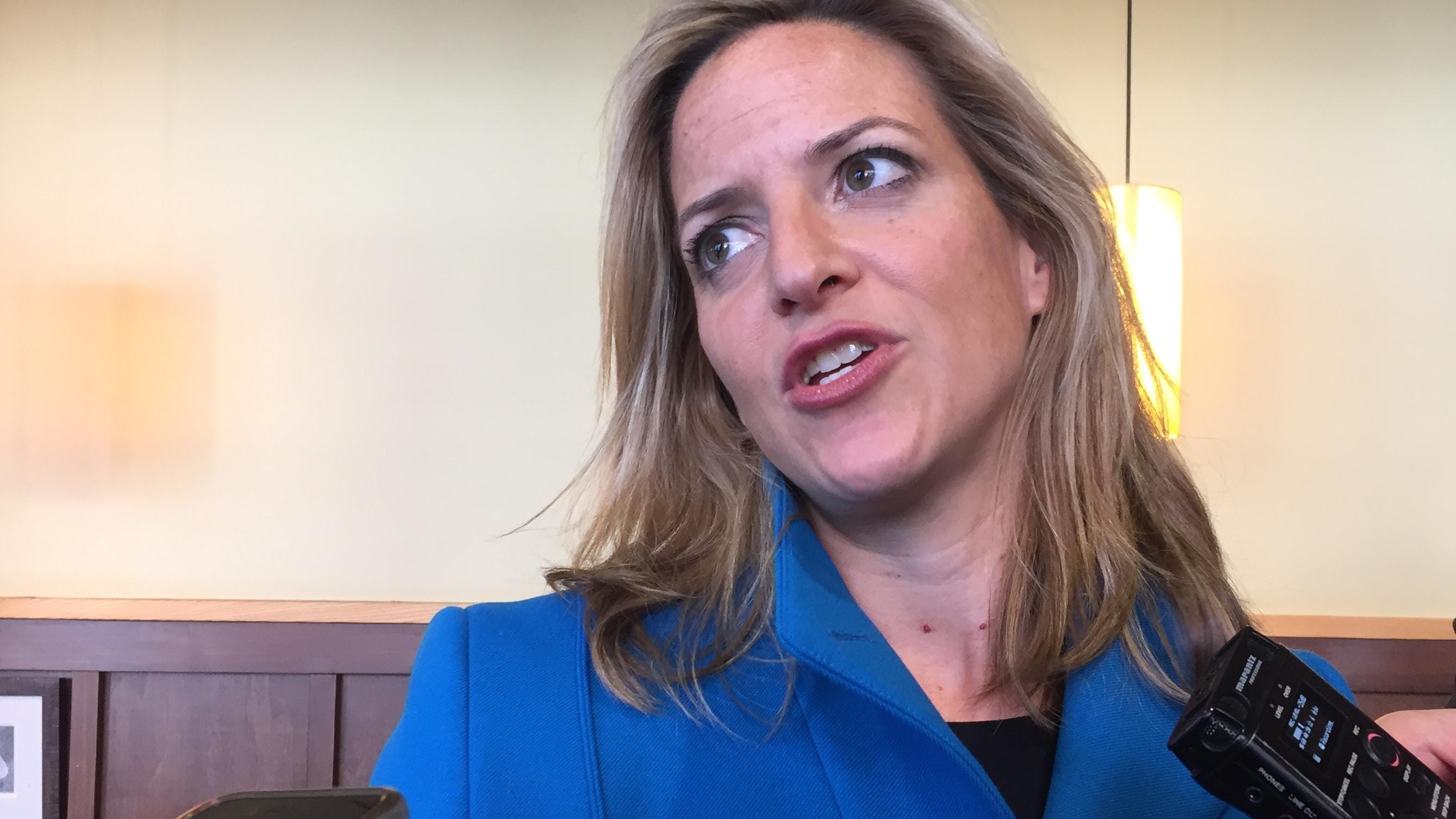Benson seeks to settle federal gerrymandering case
 Jonathan Oosting
Jonathan Oosting
Lansing — Democratic Secretary of State Jocelyn Benson is working to settle a federal lawsuit against the state alleging partisan gerrymandering by Republican lawmakers who approved legislative and congressional district boundaries in 2011.
Benson, who took office Jan. 1, this week replaced former GOP Secretary of State Ruth Johnson as a named defendant in the case. A deal with plaintiffs who sued the state over current maps could result in new district boundaries being drawn for the 2020 election cycle.
"It's clear the court has found significant evidence of partisan gerrymandering, and the likely outcome would not be favorable to the state," Benson said in a statement. "It is therefore my responsibility to ensure a fair and equitable resolution for the citizens of Michigan that would save taxpayers money and ensure fair representation."
Benson filed a court brief Thursday backing a request by GOP lawmakers to delay the case, but she did so on different grounds. Attorneys for a series of congressional and legislative Republicans last week asked to delay the case pending consideration of similar issues before the U.S. Supreme Court.
The case is scheduled to go to trial in early February, but Benson said a potential consent agreement would be in the best interest of the state and "will correct any lasting impact of impermissible partisan gerrymandering that may have occurred in the past."
Republicans have denied overt political bias in the district maps, but emails between map makers revealed as part of the federal case have included several partisan references and commentary on the prospects of maintaining GOP power.
The lawsuit alleges the maps violate the U.S. Constitution by intentionally diluting the power of Democratic voters by "packing" or "cracking" them into certain districts to benefit GOP candidates.
Charlie Spies, an attorney for congressional Republicans who had intervened in the case, declined to discuss Benson's filing, citing the ongoing litigation. Representatives for state House and Senate Republicans said leadership had not yet reviewed the filings in full.
Senate Majority Leader Mike Shirkey, R-Clarklake, is "reviewing information as it is available with his legal counsel, but he doesn't have any comment beyond that," said spokeswoman Amber McCann.
Attorneys for the plaintiffs, including the League of Women Voters and Democrats such as U.S. Rep. Rashida Tlaib of Detroit, filed a court brief late Thursday indicating they and Benson have "committed to reach a compromise" in the case and "in the near future" will present that deal to the court for potential approval.
Republican lawmakers recently joined the case, citing "uncertainty" over whether Benson would defend maps the GOP approved. It's likely those lawmakers will ask the three-judge panel to reject any settlement deal.
Plaintiffs began settlement discussions with Benson's office Jan. 10 and asked Republicans who joined the lawsuit to participate, but they declined, according to the filing.
"Should the court approve the proposed consent decree, the trial will not be necessary," attorney Mark Brewer wrote in the filing to federal Judges Eric Clay, Denise Page Hood and Gordon J. Quist. "The proposed decree will resolve all claims pending in this matter."
Brewer, who is a former chairman of the Michigan Democratic Party, declined further comment beyond the brief. Plaintiffs are asking for a hearing on the consent agreement by Feb. 5.
Laura Cox, a former state legislator now running for Michigan Republican Party chair, accused Benson of trying to "rig the system in favor of Democrats." She noted that Brewer, one of nine attorneys for plaintiffs, gave Benson a $500 campaign contribution in 2017.
Cox suggested Benson was trying to "pay back" Brewer by throwing out "maps which were legally adopted by the Legislature and signed into law by the previous governor and whose creation were guided by state and federal laws."
Benson said any potential changes to Michigan's political maps as a result of the settlement would only affect the 2020 election cycle. Voters in November approved a new citizen redistricting committee that will draw new boundaries for elections beginning in 2022. Benson supported the ballot measure.
"As a longtime advocate of citizen involvement in redistricting as a solution to end gerrymandering, I look forward to implementing (an Independent Citizens Redistricting Committee) in a way that is transparent, nonpartisan and effectively engages citizens across the state in the important task of drawing legislative districts that comply with state and federal law," she said.
joosting@detroitnews.com